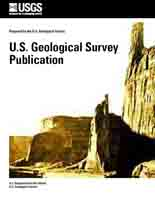Preliminary Volcano-Hazard Assessment for Redoubt Volcano, Alaska
Links
- Document: Report (pdf)
- Plate: Redoubt (pdf)
- Download citation as: RIS | Dublin Core
Abstract
Suggested Citation
Waythomas, C.F., Dorava, J.M., Miller, T.P., Neal, C., and McGimsey, R.G., 1997, Preliminary Volcano-Hazard Assessment for Redoubt Volcano, Alaska: U.S. Geological Survey Open-File Report 97-857, Report: v, 40 p.; Plate: 36 x 24 inches, https://doi.org/10.3133/ofr97857.
ISSN: 2331-1258 (online)
Study Area
| Publication type | Report |
|---|---|
| Publication Subtype | USGS Numbered Series |
| Title | Preliminary Volcano-Hazard Assessment for Redoubt Volcano, Alaska |
| Series title | Open-File Report |
| Series number | 97-857 |
| DOI | 10.3133/ofr97857 |
| Year Published | 1997 |
| Language | ENGLISH |
| Publisher | U.S. Geological Survey |
| Contributing office(s) | Alaska Volcano Observatory |
| Description | Report: v, 40 p.; Plate: 36 x 24 inches |


